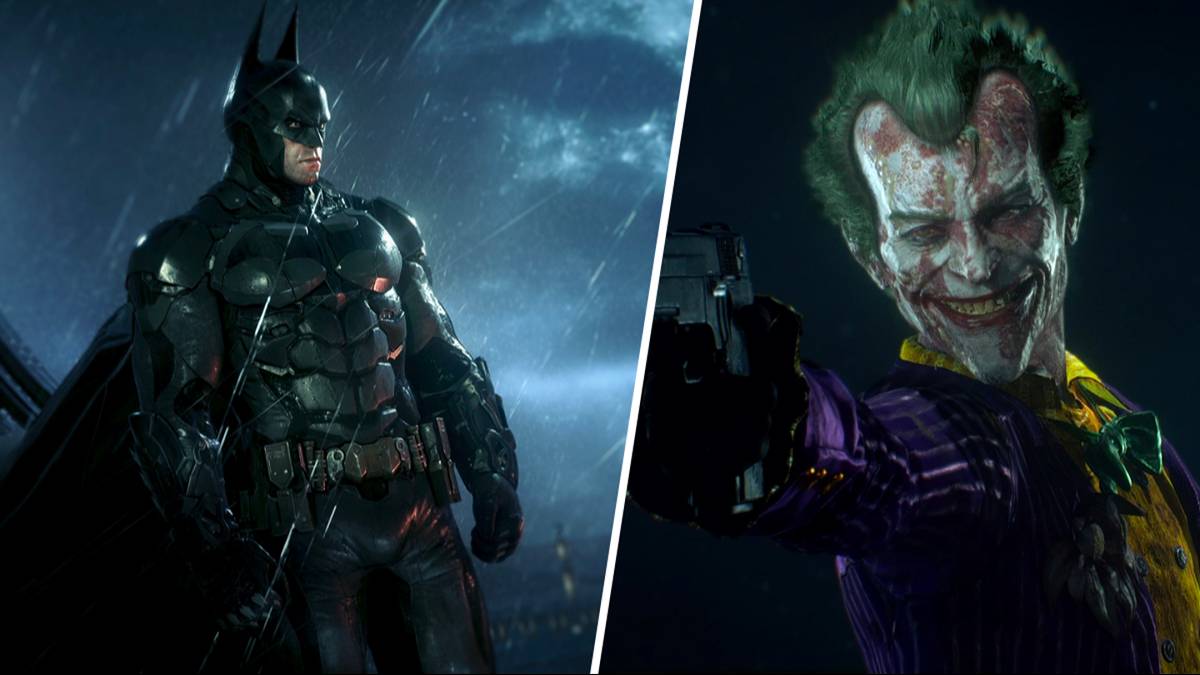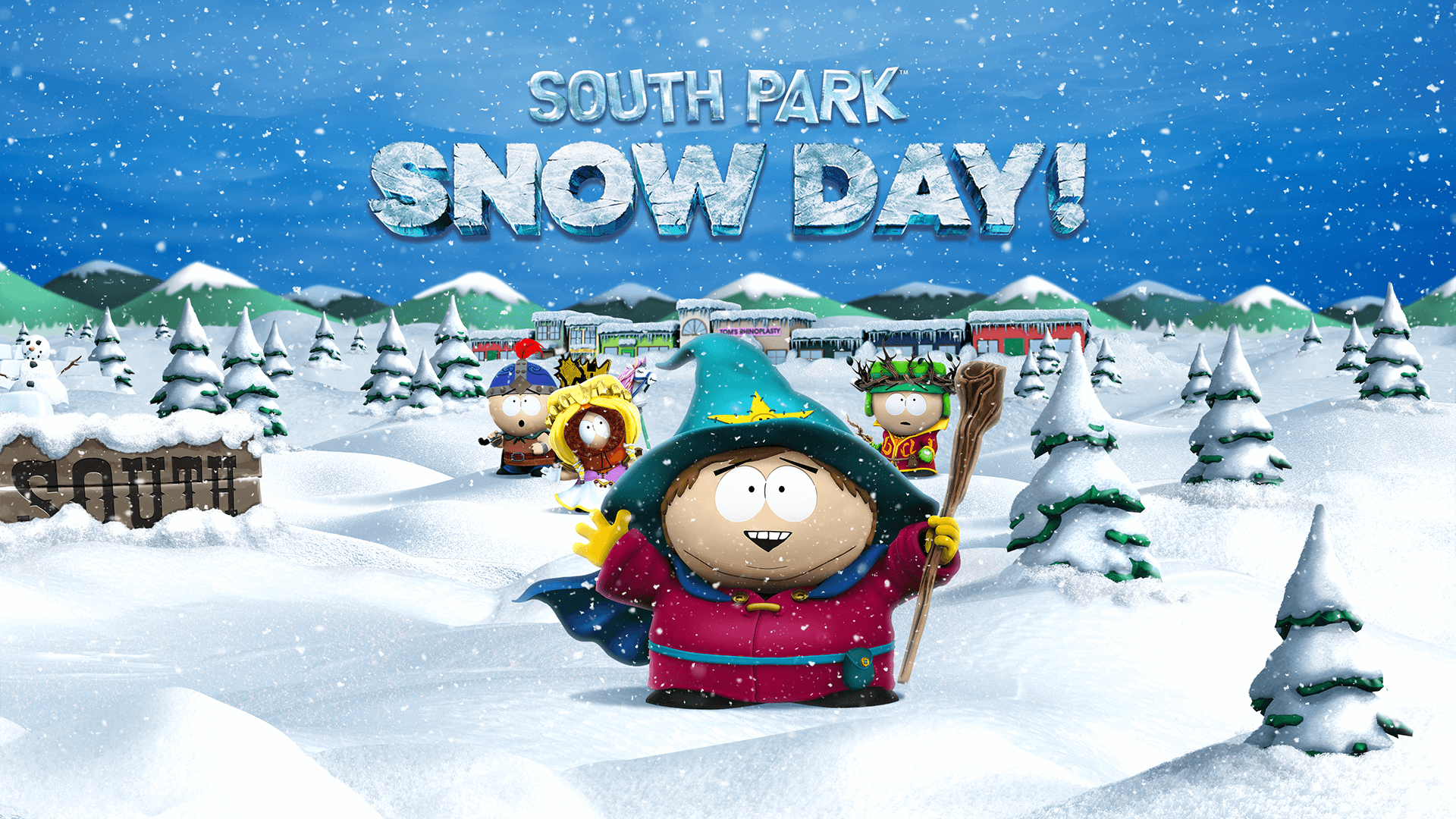Topic Movies like Hunger Games: Explore the adrenaline-filled, dystopian worlds beyond Panem with our curated list of movies like "The Hunger Games" that promise action, intrigue, and heart-pounding survival stories.
Table of Content
- What are some movies like Hunger Games that also star Jennifer Lawrence?
- Top Picks
- Additional Recommendations
- Introduction to Dystopian Cinema
- Top Picks for Hunger Games Fans
- Exploring Themes of Survival and Rebellion
- YOUTUBE: Top 10 Movies Reminding Us of The Hunger Games
- Young Adult Dystopias: A Closer Look
- Action-Packed Alternatives with Strong Protagonists
- Psychological Thrillers and Societal Critiques
- Exploring Futuristic Societies and Dystopian Worlds
- Underrated Gems: Dystopian Movies You Might Have Missed
- Comparing Dystopian Narratives: Books vs. Movies
- Conclusion: The Enduring Appeal of Dystopian Films
What are some movies like Hunger Games that also star Jennifer Lawrence?
Some movies like Hunger Games that also star Jennifer Lawrence include:
- Red Sparrow (2018)
READ MORE:
Top Picks
- After The Dark (2013) - A philosophical journey mirroring the moral dilemmas faced in The Hunger Games.
- The Tournament (2009) - A deadly competition for the title of "World"s Number One," resonating with the survival theme.
- Divergent (2014) - A story about societal factions and a heroine challenging the status quo.
- Battle Royale (2000) - A darker, more violent take on a similar "fight to the death" premise.
- Hanna (2011) - Follows a young girl"s journey as a trained assassin, exploring themes of identity and humanity.
- The Darkest Minds (2018) - Teen survivors with special abilities stand against a fearful government.
- Logan"s Run (1976) - A utopian society with a dark secret, exploring the value of life and freedom.
- The Condemned (2007) - Prisoners fighting for freedom in a televised death match, echoing the public spectacle of The Hunger Games.
- The Truman Show (1998) - An individual"s life unknowingly broadcasted as entertainment, similar to the tributes" experiences.
- The 5th Wave (2016) - A young girl"s fight to save humanity from alien invaders, highlighting themes of family and survival.

Additional Recommendations
- Lord Of The Flies (1963) - The breakdown of society among stranded boys, exploring human nature and survival.
- Nine Dead (2009) - Kidnapped strangers must discover their connection to survive, a thrilling psychological mystery.
- V For Vendetta (2005) - A dystopian rebellion against a totalitarian government, emphasizing the power of identity and freedom.
- Cube (1997) - Strangers navigating deadly traps in a maze, stressing cooperation and human ingenuity.
- Mad Max: Fury Road (2015) - A high-octane struggle for survival in a post-apocalyptic wasteland, showcasing resilience and rebellion.
Each of these films offers a unique perspective on dystopian worlds, survival, and the human spirit, making them perfect for fans of The Hunger Games.
Introduction to Dystopian Cinema
Dystopian cinema invites audiences into worlds where societies have often spiraled into despair or authoritarian control, challenging our perceptions of morality, freedom, and the future. These narratives, set in grim futures, explore the consequences of societal collapse, technological overreach, and oppressive regimes. Through the lens of dystopia, filmmakers unleash powerful stories of resistance, hope, and the indomitable human spirit.
The allure of dystopian cinema lies in its ability to mirror our deepest fears and highest aspirations, posing critical questions about governance, societal values, and individual agency. Movies like "The Hunger Games" have not only captivated audiences with their thrilling action and compelling characters but have also sparked conversations about real-world issues such as social inequality, surveillance, and the hunger for justice.
- Themes of Rebellion: Central to many dystopian films is the theme of uprising against oppressive systems, symbolizing the fight for freedom and equality.
- Survival and Humanity: These movies often feature protagonists struggling to maintain their humanity and integrity in the face of brutal societal rules and conditions.
- Speculative Technology: Dystopian cinema frequently explores the dark side of technological advancements, from AI to surveillance states, questioning their impact on human connection and freedom.
From classic tales of resistance to modern explorations of dystopian societies, this genre continues to evolve, reflecting society"s current anxieties and hopes for the future. As we delve into the worlds of movies like "The Hunger Games," we"re reminded of the power of storytelling in sparking change and inspiring resilience.
Top Picks for Hunger Games Fans
For enthusiasts of "The Hunger Games" seeking similar cinematic adventures, here"s a list of top picks that encapsulate the essence of dystopian narratives, thrilling survival challenges, and profound societal commentary.
- Divergent - A journey into a future world where society is divided into factions based on human virtues, highlighting themes of identity and resistance.
- Battle Royale - A gripping tale from Japan that pits high school students against each other on an island in a deadly game, predating and inspiring similar themes to "The Hunger Games".
- The Maze Runner - Follows a group of teens who must navigate a massive maze as part of a mysterious and deadly test, with strong themes of teamwork and survival.
- Ender"s Game - Set in a future where children are trained to fight against an alien threat, this film explores the moral and ethical implications of war on young minds.
- The Giver - A thought-provoking film about a seemingly utopian society that has eradicated pain and suffering at a great cost, raising questions about the value of emotions and memories.
Each of these films offers a unique exploration of dystopian themes, challenging protagonists, and the struggle against oppressive systems, making them must-watches for fans of "The Hunger Games".
- For those interested in the blend of science fiction and critical social examination, these movies provide compelling narratives that question authority, celebrate resilience, and explore the complexity of human nature.
- Whether it"s through the lens of a futuristic society, a survival game, or a fight against an external threat, these movies capture the spirit of adventure and rebellion that fans of "The Hunger Games" adore.
Exploring Themes of Survival and Rebellion
The heart of many dystopian narratives, including "The Hunger Games", lies in their exploration of survival and rebellion against oppressive forces. These themes resonate deeply with audiences, offering not just entertainment but also reflection on our society and potential futures.
- Survival Against Odds: This theme often portrays characters in dire, life-threatening situations, requiring them to summon their inner strength, resourcefulness, and resilience to overcome challenges. Movies like "The Maze Runner" and "Battle Royale" exemplify survival in controlled, hostile environments where characters must navigate physical and psychological trials.
- Rebellion and Resistance: Central to dystopian tales is the fight against tyranny and oppression. Characters often start as part of the system but grow to challenge and resist it, embodying hope and the desire for freedom. Films such as "Divergent" and "Ender"s Game" showcase individuals and groups standing up against totalitarian regimes and unjust societal structures.
- Moral and Ethical Dilemmas: Characters frequently face difficult choices that test their morals and ethics, pushing the audience to think about what they would do in similar situations. These dilemmas often revolve around loyalty, sacrifice, and the greater good, as seen in "The Giver".
- Questioning Authority: A key aspect of these films is the critique of power structures and the questioning of authority, urging viewers to reflect on their own societal systems and the distribution of power within them. "V For Vendetta" provides a stark commentary on surveillance, freedom of expression, and the power of individual action.
- Unity and Division: Many movies, including "The Hunger Games", explore how societies divide people—by class, faction, or other means—and the consequences thereof. They also highlight the strength found in unity and collaboration in the face of such divisions.
By delving into these themes, films like "The Hunger Games" and its contemporaries offer a mirror to our world, encouraging audiences to consider the implications of our choices and the paths that lead to dystopian futures. They remind us of the importance of standing up for what is right, challenging the status quo, and fighting for a better tomorrow.

Top 10 Movies Reminding Us of The Hunger Games
\"Looking to stay on top of your appointments and never miss an important task again? Our video on \'Reminding\' will introduce you to the best reminder apps and techniques to help you stay organized and on track with your daily schedule!\"
Movies Similar to Divergent: Action, Adventure, Thriller Movie
\"Discover the power of finding \'Similar\' products to your favorite ones, without the hassle of searching through countless options. Our video showcases an amazing tool that quickly compares products and finds the perfect match for your needs!\"
Young Adult Dystopias: A Closer Look
Young Adult (YA) dystopias have captivated readers and viewers alike, offering gripping narratives that explore complex themes through the lens of accessible storytelling. These stories often focus on young protagonists facing extraordinary circumstances, providing a relatable and inspiring journey of growth, resilience, and rebellion.
- Character Development: Central to YA dystopias is the journey of the protagonist from innocence to awareness and action. This evolution is vividly portrayed in characters like Katniss Everdeen from "The Hunger Games", who becomes a symbol of resistance and hope.
- Societal Commentary: These narratives often reflect current societal issues—such as inequality, authoritarianism, and environmental degradation—framed in exaggerated futures to discuss the potential consequences of today"s choices.
- Empowerment and Agency: YA dystopias empower their young audience, showing characters who take control of their destiny and fight against oppressive systems, encouraging viewers to believe in their ability to effect change.
- Complex Relationships: Beyond the action and adventure, these stories delve into complex relationships—romantic, familial, and platonic—that are tested and shaped by the harsh realities of their worlds.
- Moral Ambiguities: Unlike more black-and-white narratives, YA dystopias often explore the gray areas of morality, forcing characters—and by extension, the audience—to consider difficult choices and their implications.
From "Divergent" to "The Maze Runner", YA dystopias serve as both entertainment and thoughtful commentary on the human condition. They challenge young adults to think critically about their world, the power of individual action, and the importance of standing up for what is right.
Action-Packed Alternatives with Strong Protagonists
Fans of "The Hunger Games" who crave the thrill of action coupled with the depth of strong, compelling protagonists have a wealth of options to explore. These films not only deliver exhilarating action sequences but also showcase characters with rich backstories, complex emotions, and the resolve to overcome daunting challenges.
- Mad Max: Fury Road - This high-octane film features not just breathtaking action but also strong characters fighting for survival in a dystopian wasteland.
- Wonder Woman - A blend of action, myth, and empowerment, this film follows Diana"s journey from the sheltered shores of Themyscira to becoming a hero in the world of men.
- Edge of Tomorrow - With its unique take on time loops and alien warfare, this film presents a gripping story of resilience, teamwork, and determination.
- Black Panther - Beyond its action-packed sequences, this movie delves into themes of leadership, identity, and the struggle for justice, making it a standout in the superhero genre.
- Star Wars: The Force Awakens - This addition to the Star Wars saga introduces new heroes embarking on a journey filled with danger, discovery, and hope against the backdrop of a galaxy at war.
Each of these films offers more than just action; they provide narratives that inspire, characters who resonate, and worlds that captivate. They prove that action movies can be both thrilling and thought-provoking, offering viewers a chance to see reflections of bravery, sacrifice, and the fight against oppression through the eyes of strong protagonists.

Psychological Thrillers and Societal Critiques
The intersection of psychological thrillers and societal critiques in cinema offers audiences a deeply engaging experience, challenging them to question the status quo and the nature of humanity. These films, much like "The Hunger Games", delve into the psyche of their characters and the societies they inhabit, revealing the complexities of power, control, and resistance.
- V for Vendetta - A powerful exploration of freedom versus oppression, this film uses the backdrop of a totalitarian England to discuss themes of individualism, rebellion, and the power of ideas.
- Black Mirror (Series) - Though not a movie, this anthology series critically examines modern society and the unanticipated consequences of technology, echoing the dystopian themes popularized by "The Hunger Games".
- The Truman Show - A satirical look at reality television and surveillance, this film questions the ethics of entertainment and personal freedom within a controlled environment.
- Snowpiercer - Set aboard a train carrying the last remnants of humanity, this film offers a critique of class hierarchy and social injustice, wrapped in a thrilling narrative of survival and revolution.
- The Lobster - A unique blend of dark comedy and dystopian themes, this film critiques societal norms around relationships, conformity, and the pressures to conform.
These films and series stand out for their thought-provoking content, blending the tension and intrigue of psychological thrillers with incisive commentary on societal issues. They invite viewers to reflect on their perceptions of society, the moral dilemmas facing humanity, and the lengths to which individuals will go to find freedom or conformity.
Exploring Futuristic Societies and Dystopian Worlds
The allure of dystopian and futuristic narratives lies in their exploration of societies transformed by extreme conditions—be it through authoritarian regimes, environmental catastrophes, or technological advancements gone awry. These settings serve as a canvas for storytelling that delves into the human condition, societal structures, and the ethics of power and resistance.
- Blade Runner and Blade Runner 2049 - These films present a visually stunning and philosophically rich depiction of the future, exploring themes of identity, consciousness, and the implications of technological advancement on society and individuality.
- The Matrix Series - A groundbreaking blend of action, cyberpunk, and existential inquiry, The Matrix trilogy questions reality, freedom, and the fight against oppressive systems controlling humanity.
- Children of Men - Set in a near-future where humanity faces extinction due to infertility, this film explores themes of hope, despair, and the fight for the future of the human race.
- Altered Carbon (Series) - Though a TV series, Altered Carbon delves deep into the implications of technological advancements on identity, mortality, and society, set in a richly imagined future world.
- Ready Player One - Combining nostalgia with a critique of future societal trends, this film explores the escapism and potential dangers of virtual realities in a world ravaged by environmental and economic collapse.
These films and series not only entertain but also challenge viewers to reflect on the directions our world could take, the moral and ethical dilemmas we may face, and the resilience of the human spirit in the face of dystopian realities. They remind us of the power of speculative fiction to inspire dialogue, imagination, and change.
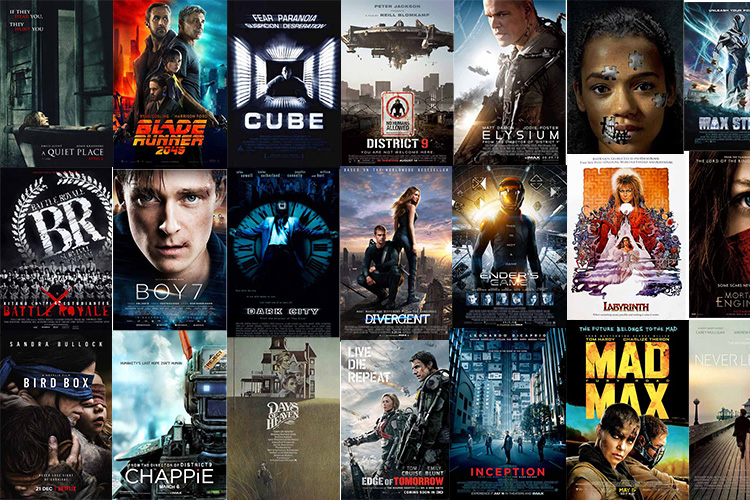
Underrated Gems: Dystopian Movies You Might Have Missed
In the vast landscape of dystopian cinema, some films, while not as widely recognized as "The Hunger Games", offer unique visions of the future that are both compelling and thought-provoking. These underrated gems provide fresh perspectives on dystopian themes, showcasing innovative storytelling and deep explorations of societal issues.
- Equilibrium (2002) - In a future where emotions are regulated by drugs to prevent war, one man starts to feel, sparking a revolution. This film combines stylish action with a critique of emotion suppression and conformity.
- The Road (2009) - A haunting journey of a father and son in a post-apocalyptic world, this movie explores themes of survival, love, and the essence of humanity amidst desolation.
- Snowpiercer (2013) - Before gaining widespread recognition, this film presented a unique class struggle aboard a train housing the last remnants of humanity, offering sharp social commentary within a gripping narrative.
- Predestination (2014) - A mind-bending tale of time travel, identity, and fate, this film challenges viewers with its complex narrative and philosophical questions about predestination and free will.
- In Time (2011) - This movie imagines a world where time is the ultimate currency, exploring the disparities between the rich and poor in a society where longevity is directly tied to wealth.
These films, each with their unique take on dystopian futures, invite viewers to explore worlds where societal norms and human values are pushed to their limits. They prove that the genre is rich with stories that question, challenge, and entertain, often leaving a lasting impact on their audience.
Comparing Dystopian Narratives: Books vs. Movies
The adaptation of dystopian novels into films offers a fascinating study in the transformation of narrative mediums. While both books and movies aim to immerse their audience in speculative futures, they do so through different lenses, each with its own strengths and limitations.
- Depth of World-Building: Books often have the luxury of delving deeper into the lore, politics, and societal norms of their dystopian worlds, offering readers a comprehensive understanding of the setting. Movies, constrained by time, must balance detailed world-building with narrative pace, often simplifying complex backgrounds.
- Character Development: The inner thoughts and motivations of characters can be more thoroughly explored in novels, providing a nuanced view of their journeys. In contrast, films rely on visual storytelling and performances to convey character arcs, sometimes leading to broader interpretations.
- Visual vs. Imaginative Realization: Movies bring dystopian worlds to life with visual effects, set designs, and cinematography, offering a direct visual realization of the narrative. Books, however, engage the reader"s imagination, allowing for a personal interpretation of settings and events.
- Narrative Pace and Focus: Film adaptations often streamline plots and focus on high-stakes action and dramatic moments to maintain audience engagement. Books can afford to explore subplots and themes more leisurely, providing a richer but potentially slower-paced story.
- Themes and Messages: While both mediums can explore complex themes, books may offer more space to delve into societal critiques and philosophical questions. Movies, aiming for a wide audience, might prioritize universal themes and more straightforward moral lessons.
Comparing dystopian narratives across books and movies reveals the unique value each medium brings to storytelling. While films offer a shared visual spectacle, books provide an in-depth, personal journey through their worlds. Fans of dystopian tales can appreciate the distinct experiences provided by reading the novel and watching its film adaptation, each enriching the narrative in its own way.
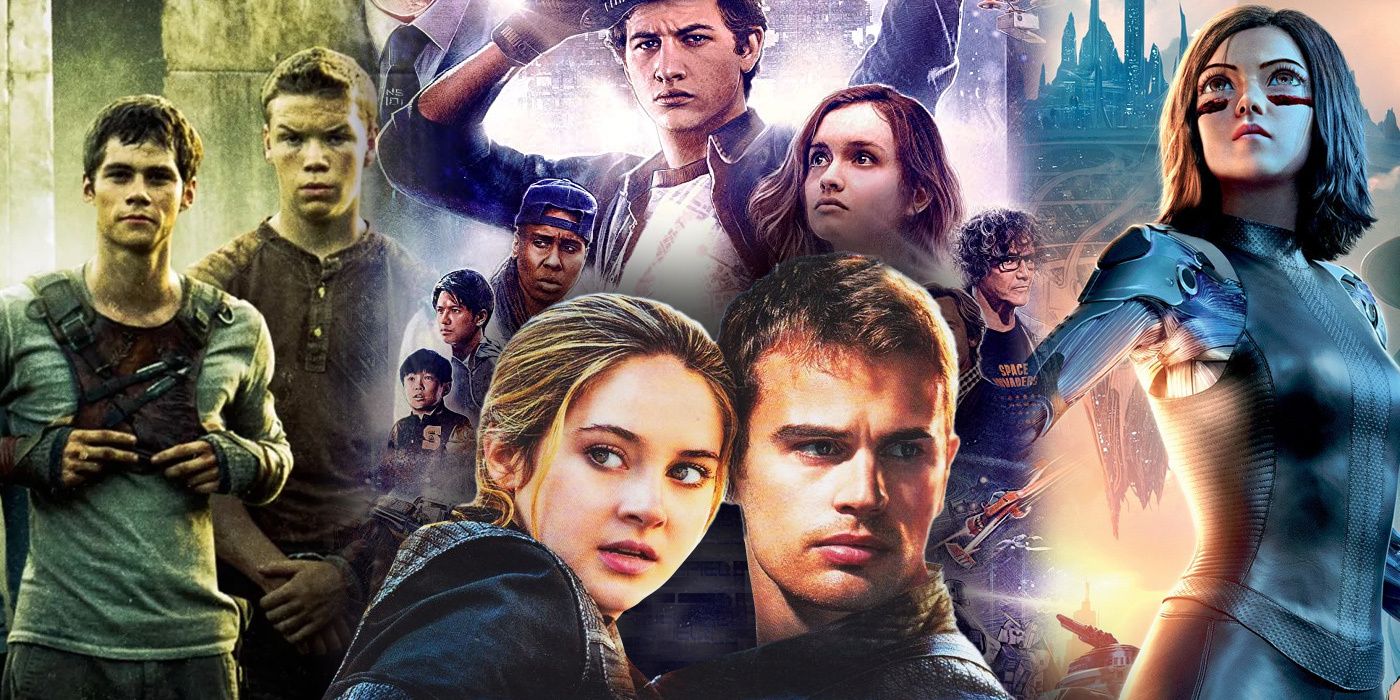
READ MORE:
Conclusion: The Enduring Appeal of Dystopian Films
The enduring appeal of dystopian films lies in their unique blend of entertainment, thought-provocation, and social commentary. Through the imaginative exploration of future societies, these films hold up a mirror to our present, questioning the path humanity is on and the values we hold dear. "The Hunger Games" and its contemporaries have captivated audiences not just with their thrilling narratives and complex characters but also by engaging with themes of power, resistance, and the human spirit.
Dystopian films serve as cautionary tales, warning us of the potential consequences of our actions and the dangers of unchecked technological advancement, environmental neglect, and authoritarian governance. Yet, they also offer hope—showing that even in the darkest of futures, individuals have the power to effect change, stand up against oppression, and fight for a better world.
As society continues to grapple with rapid changes and global challenges, the relevance of these stories remains undiminished. They encourage us to reflect on our choices, consider the impact of our actions on future generations, and remind us of the resilience and strength inherent in the human spirit. In this way, dystopian films are more than just entertainment; they are a vital part of our cultural dialogue, inspiring us to dream of and work towards a brighter future.
Dive into the riveting worlds beyond "The Hunger Games" with our exploration of dystopian films that challenge, entertain, and inspire. Discover new favorites and revisit classics that echo the themes of survival, rebellion, and the resilience of the human spirit.
